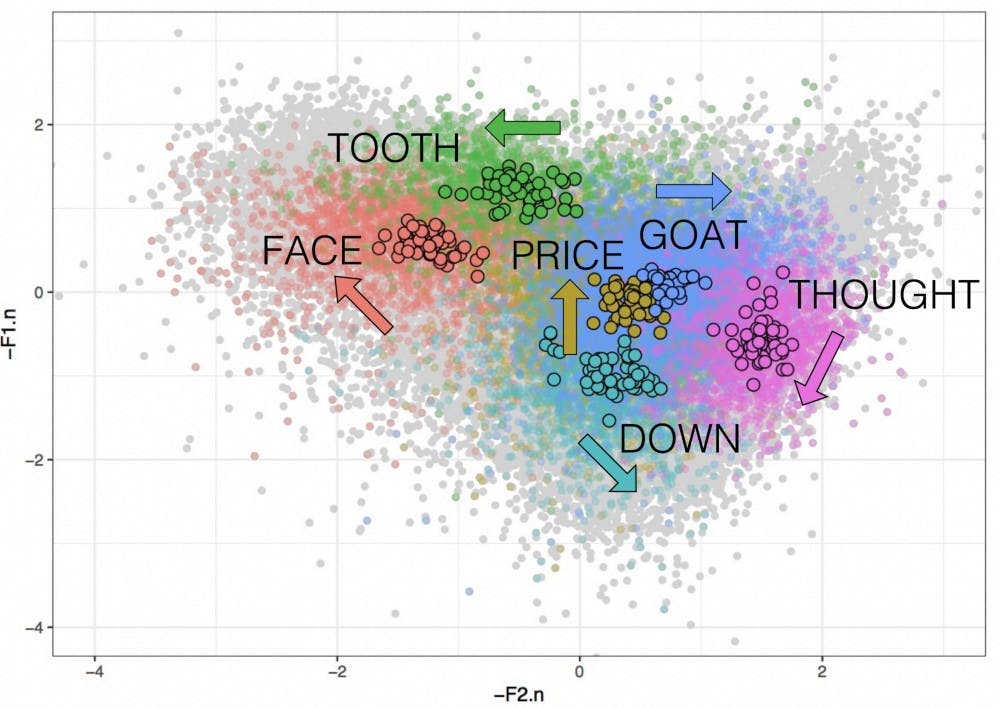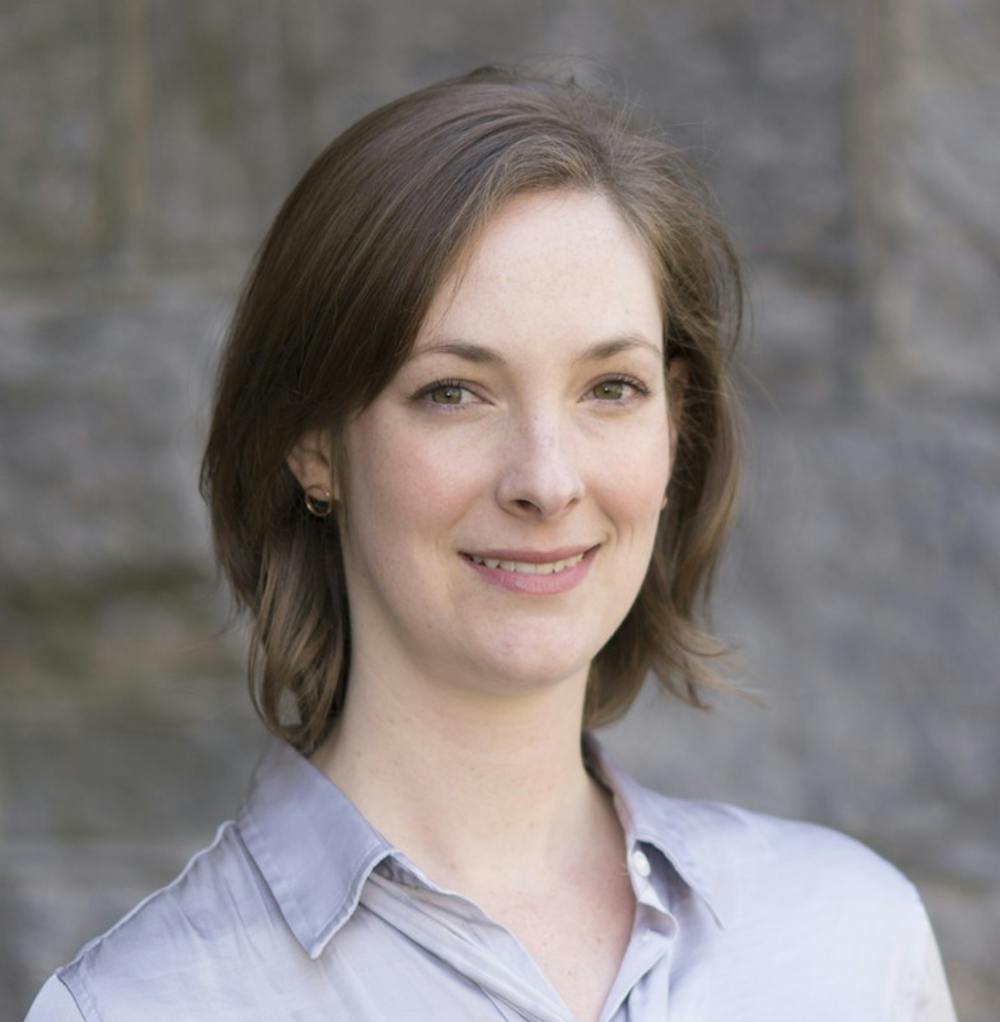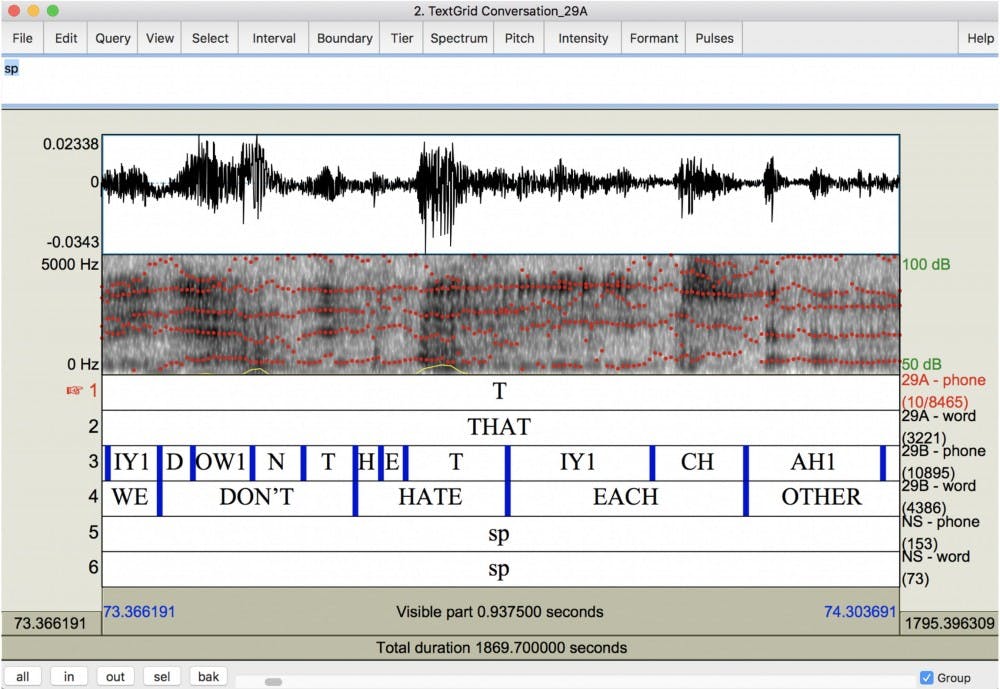
Would you like a glass of “wooder”? Maybe some “cawfee”? This unique dialect is common at Penn when speaking to native Philadelphians, and assistant professor of Linguistics Meredith Tamminga is researching the Philadelphia accent and the social factors that are changing the way it is spoken.
To understand how Philadelphians' accents are changing, Tamminga is building upon prior research about the dialect.
“The Philadelphia accent is one of the best-studied accents in the world,” Tamminga said.
She is drawing upon the work of her mentor William Labov, the retired John H. and Margaret B. Fassitt professor of Linguistics, who has been studying the Philadelphia dialect since the 1960s.
Tamminga said there are several examples of recent phonetic changes. Building on prior research that examined class stratification and other social factors, she is specifically looking at the reasons behind changes in the pronunciation of various words, such as "plate" and the days of the week.
“One change nobody notices but that there is strong evidence for is that a long ‘a’ like in ‘plate’ is becoming more like ‘ee,’ so the word sounds like ‘pleet.’ I can’t tell you why this is happening, but we’re interested in finding out,” Tamminga told Penn Today. “One of the things we’ve learned from Professor Labov’s research is that there’s sort of class stratification as well as of course [some] sorts of racial and gender differences in language change."
However, there are some phonetic changes that are starting to sound more mainstream.
“I know old Philadelphia people, my parent’s generation used to say ‘Mondey,’ ‘Tuesdey,’ ‘Wednesdey,’” said College freshman and native Philadelphian Bernadette Breslin. “Now, it’s starting to come about like ‘Monday,’ ‘Tuesday,’ ‘Wednesday’. Vowel sounds with ‘day’ have changed.”
Tamminga said many social factors contribute to this shift in language, including what demographic group one identifies with.

“Young women are really the innovators in language, and where they go, other people follow,” Tamminga noted.
Tamminga’s research, which is currently funded by the National Science Foundation, studies what specifically makes young white women who grew up in Philadelphia as linguistically innovative as they are. To do so, Tamminga analyzes what aspects of these individuals' personalities contribute to the change and to what degree they are linguistically flexible.
Tamminga conducts her research by bringing pairs of friends from nearby colleges like Temple and Drexel into her lab and allowing them to converse casually as she records from a distance. She then separates the friends and analyzes how linguistically flexible they are and what personality markers they have. In doing so, she attempts to connect phonetic flexibility and personality types to the probability that an individual will spark language change.
In addition, Tamminga analyzes phonetic factors like the shape of a speaker's mouth and tongue placement in relation to vowel sounds.
Students from Philadelphia aren’t quick to notice their accents, though.
Breslin, who grew up in Fishtown but moved to the North Philadelphia suburbs four years ago, did not notice her accent as a child.
“I remember moving to the suburbs … I didn’t know I had a Philly accent until I moved [there]," she said. "People from the suburbs kept asking me where I was from.”
“I only realized [my accent] when people were like ‘ew, say that again,’” said College freshman Jana Pugsley, who grew up in the Philadelphia area. “People thought that I was very uneducated or something because of how I sounded, so I had to make this conscious shift to normalize my accent.” Pugsley added she has to do this in academic settings often.
Tamminga said she hopes that her research will break the stigma behind the Philadelphia accent, noting that people who are at the forefront of language change with certain dialects are often viewed negatively. Tamminga spoke of how these accents are often associated with working-class language and how these accents feed into stereotypes that frequently carry negative connotations.
Although data analysis is still ongoing, Tamminga said her research ultimately aims to both highlight and normalize the uniqueness and constantly-changing nature of accents and language as a whole.

The Daily Pennsylvanian is an independent, student-run newspaper. Please consider making a donation to support the coverage that shapes the University. Your generosity ensures a future of strong journalism at Penn.
Donate







